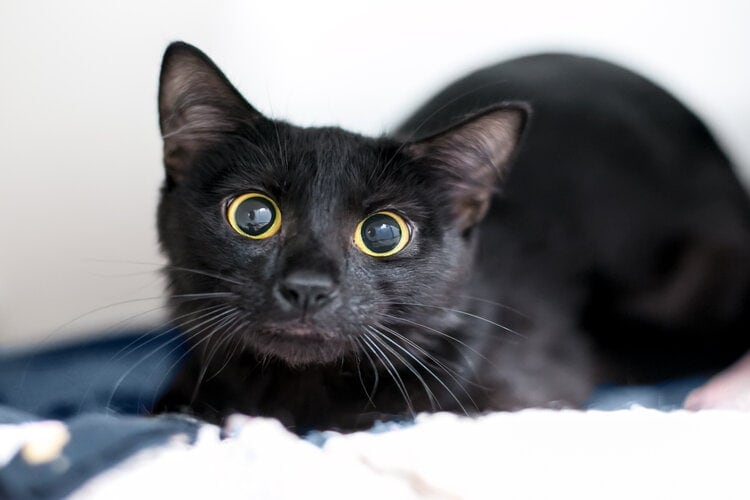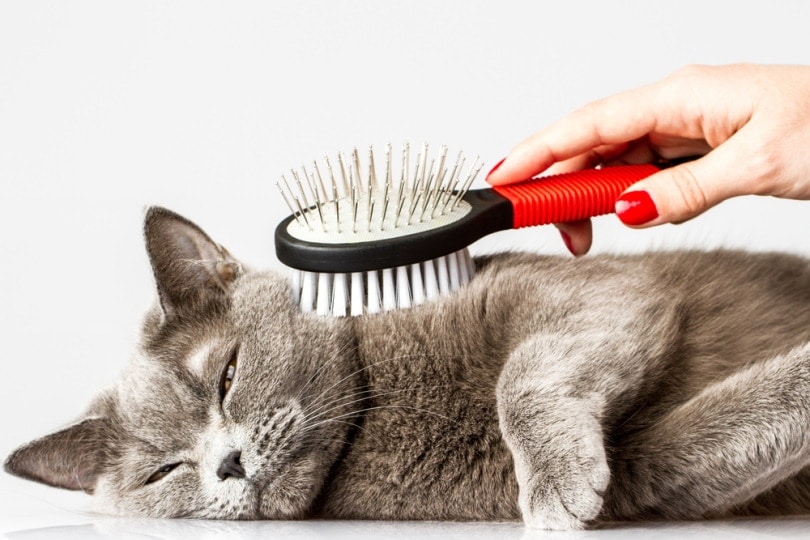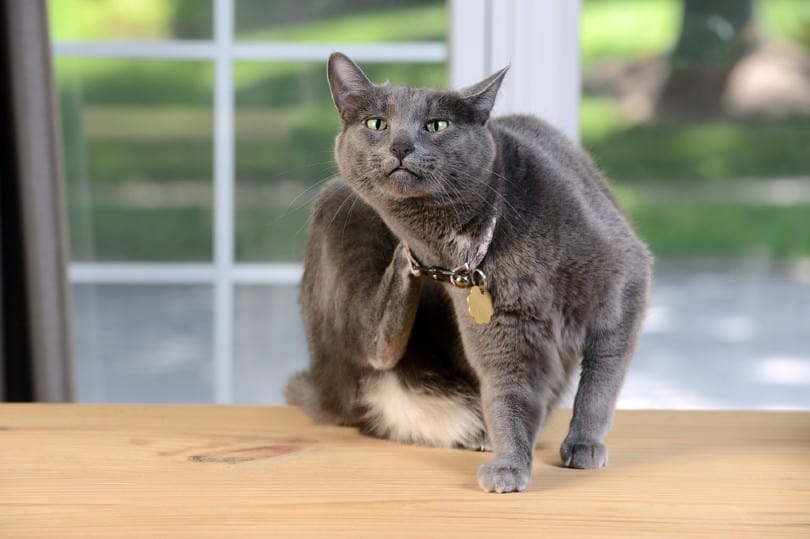10 Greatest Cat Poems to Brighten Your Day

Updated on
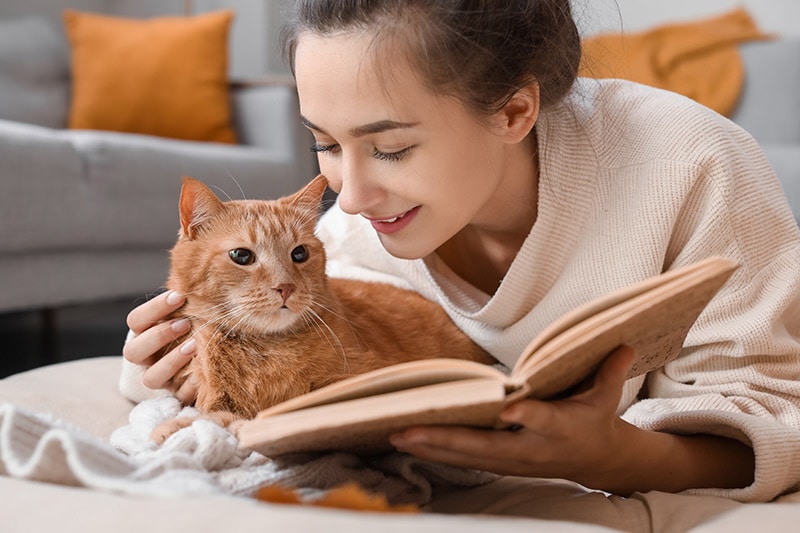
Longtime companions of humans, cats have been a source of love, devotion, legend, and inspiration. They’ve also been the focus of many poems by famous authors, including Emily Dickinson and T.S. Eliot.
Ranging from touching to comical, here are our picks for the greatest cat poems. Grab a cup of tea, snuggle up next to your cat and enjoy these poems.
The 10 Greatest Cat Poems
1. “Pangur Bán”

| Author: | Anonymous |
| Year: | 9th century |
Pangur Bán is an old Irish poem that was written by a monk in the 9th century. The poem was discovered in a monastery in Austria and highlights his life as a monk and his companion cat.
I and Pangur Bán, each of us two at his special art:
his mind is at hunting (mice), my own mind is in my special craft.
I love to rest—better than any fame—at my booklet with diligent science:
not envious of me is Pangur Bán: he himself loves his childish art.
When we are—tale without tedium—in our house, we two alone,
we have—unlimited (is) feat-sport—something to which to apply our acuteness.
It is customary at times by feats of valour, that a mouse sticks in his net,
and for me there falls into my net a difficult dictum with hard meaning.
His eye, this glancing full one, he points against the wall-fence:
I myself against the keenness of science point my clear eye, though it is very feeble.
He is joyous with speedy going where a mouse sticks in his sharp claw:
I too am joyous, where I understand a difficult dear question.
Though we are thus always, neither hinders the other:
each of us two likes his art, amuses himself alone.
He himself is master of the work which he does every day:
while I am at my own work, (which is) to bring difficulty to clearness.
2. “She Sights a Bird – She Chuckles”

| Author: | Emily Dickinson |
| Year: | 19th century |
“She sights a Bird – she chuckles” is the 507th poem in Dickinson’s Complete Poems. It describes a cat stalking its prey in a true Dickinson style. Like all of her poems, she manages to convey the unique look of a cat flattening itself in pursuit of prey in a simple but impactful manner.
She sights a Bird—she chuckles—
She flattens—then she crawls—
She runs without the look of feet—
Her eyes increase to Balls—
Her Jaws stir—twitching—hungry—
Her Teeth can hardly stand—
She leaps, but Robin leaped the first—
Ah, Pussy, of the Sand,
The Hopes so juicy ripening—
You almost bather your Tongue—
When Bliss disclosed a hundred Toes—
And fled with every one—
3. A Cat
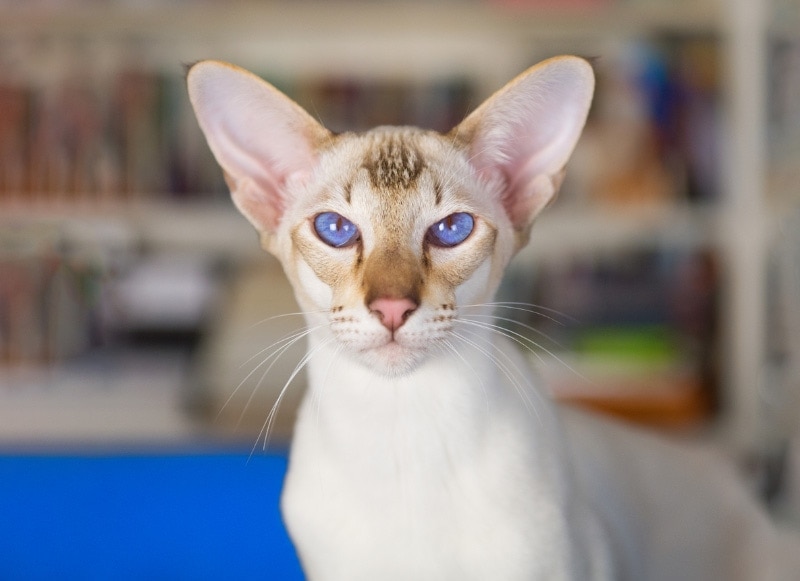
| Author: | Edward Thomas |
| Year: | 19th century |
“A Cat” is a short poem by Edward Thomas that demonstrates his direct and matter-of-fact style that evokes emotion. Unlike other poems on this list, Thomas’ poem is more critical of cats for killing birds but acknowledges what humans have done to cats in a subtle way.
She had a name among the children;
But no one loved though someone owned
Her, locked her out of doors at bedtime
And had her kittens duly drowned.
In Spring, nevertheless, this cat
Ate blackbirds, thrushes, nightingales,
And birds of bright voice and plume and flight,
As well as scraps from neighbours’ pails.
I loathed and hated her for this;
One speckle on a thrush’s breast
Was worth a million such; and yet
She lived long, till God gave her rest.
4. “Ode on the Death of a Favourite Cat, Drowned in a Tub of Gold Fishes”
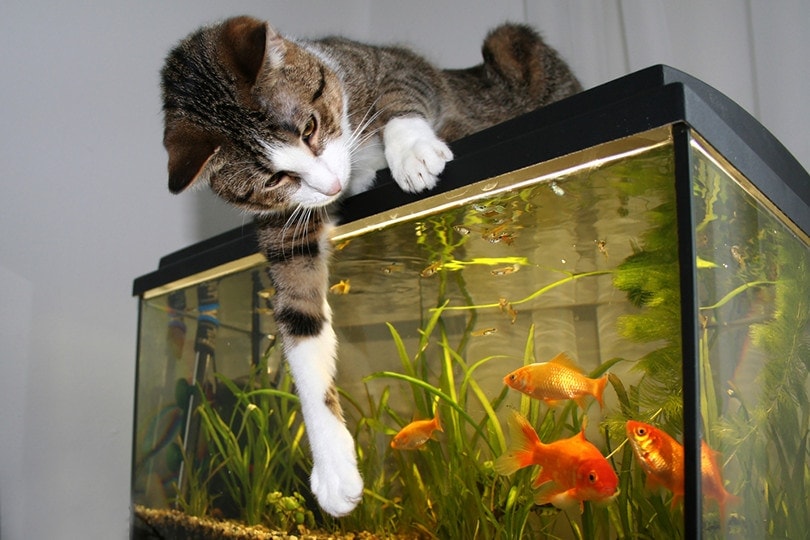
| Author: | Thomas Gray |
| Year: | 18th century |
Thomas Gray is remembered for three poems, though he had a larger body of work. It’s a satirical work that supports his ongoing themes of how vanity and greed can lead to demise, as is the case with the cat in the poem.
’Twas on a lofty vase’s side,
Where China’s gayest art had dyed
The azure flowers that blow;
Demurest of the tabby kind,
The pensive Selima, reclined,
Gazed on the lake below.
Her conscious tail her joy declared;
The fair round face, the snowy beard,
The velvet of her paws,
Her coat, that with the tortoise vies,
Her ears of jet, and emerald eyes,
She saw; and purred applause.
Still had she gazed; but ’midst the tide
Two angel forms were seen to glide,
The genii of the stream;
Their scaly armour’s Tyrian hue
Through richest purple to the view
Betrayed a golden gleam.
The hapless nymph with wonder saw;
A whisker first and then a claw,
With many an ardent wish,
She stretched in vain to reach the prize.
What female heart can gold despise?
What cat’s averse to fish?
Presumptuous maid! with looks intent
Again she stretch’d, again she bent,
Nor knew the gulf between.
(Malignant Fate sat by, and smiled)
The slippery verge her feet beguiled,
She tumbled headlong in.
Eight times emerging from the flood
She mewed to every watery god,
Some speedy aid to send.
No dolphin came, no Nereid stirred;
Nor cruel Tom, nor Susan heard;
A Favourite has no friend!
From hence, ye beauties, undeceived,
Know, one false step is ne’er retrieved,
And be with caution bold.
Not all that tempts your wandering eyes
And heedless hearts, is lawful prize;
Nor all that glisters, gold.
5. The Owl and the Pussycat
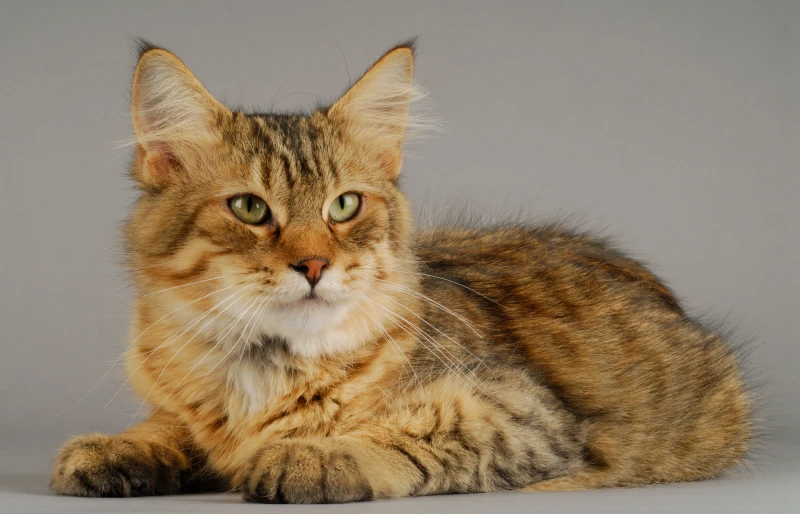
| Author: | Edward Lear |
| Year: | 19th century |
“The Owl and the Pussycat” is a nonsense poem by Edward Lear that was written for the three-year-old daughter of his friend and fellow poet John Addington Symonds. It tells the story of love between three anthropomorphic animals, an owl, a cat, a pig, and a turkey.
I
The Owl and the Pussy-cat went to sea
In a beautiful pea-green boat,
They took some honey, and plenty of money,
Wrapped up in a five-pound note.
The Owl looked up to the stars above,
And sang to a small guitar,
“O lovely Pussy! O Pussy, my love,
What a beautiful Pussy you are,
You are,
You are!
What a beautiful Pussy you are!”
II
Pussy said to the Owl, “You elegant fowl!
How charmingly sweet you sing!
O let us be married! too long we have tarried:
But what shall we do for a ring?”
They sailed away, for a year and a day,
To the land where the Bong-Tree grows
And there in a wood a Piggy-wig stood
With a ring at the end of his nose,
His nose,
His nose,
With a ring at the end of his nose.
III
“Dear Pig, are you willing to sell for one shilling
Your ring?” Said the Piggy, “I will.”
So they took it away, and were married next day
By the Turkey who lives on the hill.
They dined on mince, and slices of quince,
Which they ate with a runcible spoon;
And hand in hand, on the edge of the sand,
They danced by the light of the moon,
The moon,
The moon,
They danced by the light of the moon.
6. Macavity, the Mystery Cat
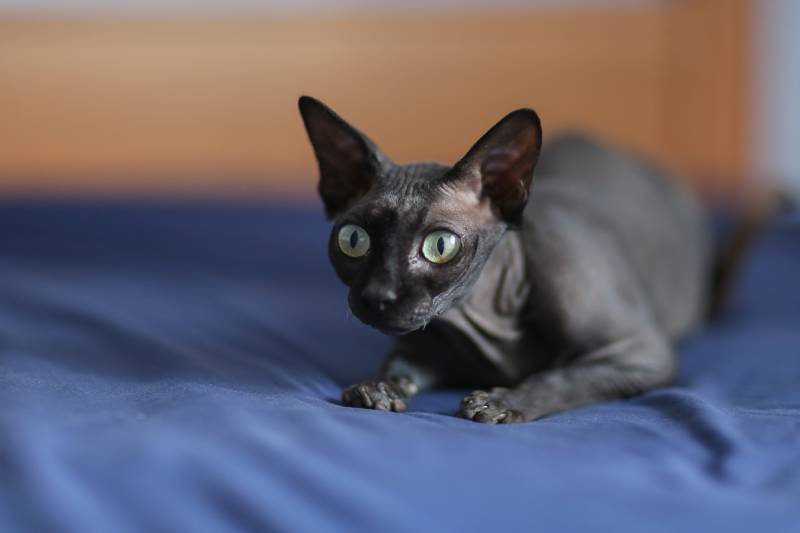
| Author: | T.S. Eliot |
| Year: | 20th century |
“Macavity, the Mystery Cat” is a poem from T.S. Eliot’s 1939 poetry book, “Old Possum’s Book of Practical Cats.” It’s also featured in Andrew Lloyd Webber’s “Cats.” Macavity, the cat in the poem, is a criminal with mystical powers.
Beginning:
Macavity’s a Mystery Cat: he’s called the Hidden Paw –
For he’s the master criminal who can defy the Law.
He’s the bafflement of Scotland Yard, the Flying Squad’s despair:
For when they reach the scene of crime – Macavity’s not there!
End:
And they say that all the Cats whose wicked deeds are widely known
(I might mention Mungojerrie, I might mention Griddlebone)
Are nothing more than agents for the Cat who all the time
Just controls their operations: the Napoleon of Crime!
7. An Old Cat’s Dying Soliloquy
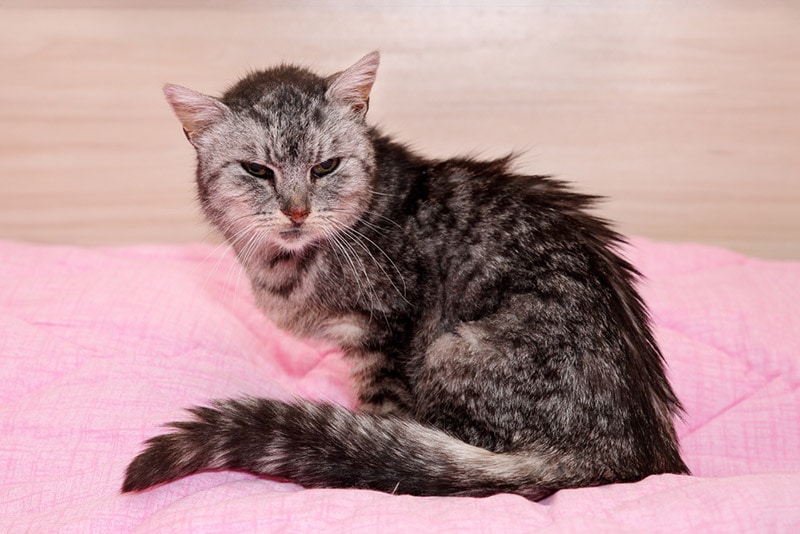
| Author: | Anna Seward |
| Year: | 18th century |
Anna Seward’s “An Old Cat’s Dying Soliloquy” is a poem memorializing the “gentlest, fondest of the tabby race.” The poem is written from the cat’s perspective as she revisits all the favorite places and pastimes of her youth.
Years saw me still Acasto’s mansion grace,
The gentlest, fondest of the tabby race;
Before him frisking through the garden glade,
Or at his feet in quiet slumber laid;
Praised for my glossy back of zebra streak,
And wreaths of jet encircling round my neck;
Soft paws that ne’er extend the clawing nail,
The snowy whisker and the sinuous tail;
Now feeble age each glazing eyeball dims,
And pain has stiffened these once supple limbs;
Fate of eight lives the forfeit gasp obtains,
And e’en the ninth creeps languid through my veins.
Much sure of good the future has in store,
When on my master’s hearth I bask no more,
In those blest climes, where fishes oft forsake
The winding river and the glassy lake;
There, as our silent-footed race behold
The crimson spots and fins of lucid gold,
Venturing without the shielding waves to play,
They gasp on shelving banks, our easy prey:
While birds unwinged hop careless o’er the ground,
And the plump mouse incessant trots around,
Near wells of cream that mortals never skim,
Warm marum creeping round their shallow brim;
Where green valerian tufts, luxuriant spread,
Cleanse the sleek hide and form the fragrant bed.
Yet, stern dispenser of the final blow,
Before thou lay’st an aged grimalkin low,
Bend to her last request a gracious ear,
Some days, some few short days, to linger here;
So to the guardian of his tabby’s weal
Shall softest purrs these tender truths reveal:
” Ne’er shall thy now expiring puss forget
To thy kind care her long-enduring debt,
Nor shall the joys that painless realms decree
Efface the comforts once bestowed by thee;
To countless mice thy chicken-bones preferred,
Thy toast to golden fish and wingless bird;
O’er marum borders and valerian bed
Thy Selima shall bend her moping head,
Sigh that no more she climbs, with grateful glee,
Thy downy sofa and thy cradling knee;
Nay, e’en at founts of cream shall sullen swear,
Since thou, her more loved master, art not there.”
8. Jubilate Agno
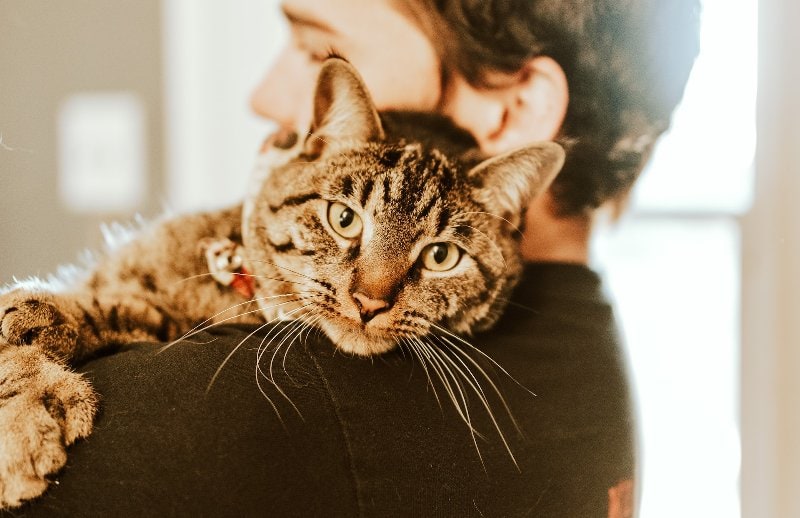
| Author: | Christopher Smart |
| Year: | 18th century |
“Jubilate Agno” was written by Christopher Smart when he was confined in a mental health facility in the 18th century. It was for his cat, who was his only companion during his time institutionalized.
For I will consider my Cat Jeoffry.
For he is the servant of the Living God duly and daily serving him.
For at the first glance of the glory of God in the East he worships in his way.
For this is done by wreathing his body seven times round with elegant quickness.
For then he leaps up to catch the musk, which is the blessing of God upon his prayer.
For he rolls upon prank to work it in.
For having done duty and received blessing he begins to consider himself.
For this he performs in ten degrees.
For first he looks upon his forepaws to see if they are clean.
For secondly he kicks up behind to clear away there.
For thirdly he works it upon stretch with the forepaws extended.
For fourthly he sharpens his paws by wood.
For fifthly he washes himself.
For sixthly he rolls upon wash.
For seventhly he fleas himself, that he may not be interrupted upon the beat.
For eighthly he rubs himself against a post.
For ninthly he looks up for his instructions.
For tenthly he goes in quest of food.
For having consider’d God and himself he will consider his neighbour.
For if he meets another cat he will kiss her in kindness.
For when he takes his prey he plays with it to give it a chance.
For one mouse in seven escapes by his dallying.
For when his day’s work is done his business more properly begins.
For he keeps the Lord’s watch in the night against the adversary.
For he counteracts the powers of darkness by his electrical skin and glaring eyes.
For he counteracts the Devil, who is death, by brisking about the life.
For in his morning orisons he loves the sun and the sun loves him.
For he is of the tribe of Tiger.
For the Cherub Cat is a term of the Angel Tiger.
For he has the subtlety and hissing of a serpent, which in goodness he suppresses.
For he will not do destruction, if he is well-fed, neither will he spit without provocation.
For he purrs in thankfulness, when God tells him he’s a good Cat.
For he is an instrument for the children to learn benevolence upon.
For every house is incomplete without him and a blessing is lacking in the spirit.
For the Lord commanded Moses concerning the cats at the departure of the Children of Israel from Egypt.
For every family had one cat at least in the bag.
For the English Cats are the best in Europe.
For he is the cleanest in the use of his forepaws of any quadruped.
For the dexterity of his defence is an instance of the love of God to him exceedingly.
For he is the quickest to his mark of any creature.
For he is tenacious of his point.
For he is a mixture of gravity and waggery.
For he knows that God is his Saviour.
For there is nothing sweeter than his peace when at rest.
For there is nothing brisker than his life when in motion.
For he is of the Lord’s poor and so indeed is he called by benevolence perpetually—Poor Jeoffry! poor Jeoffry! the rat has bit thy throat.
For I bless the name of the Lord Jesus that Jeoffry is better.
For the divine spirit comes about his body to sustain it in complete cat.
For his tongue is exceeding pure so that it has in purity what it wants in music.
For he is docile and can learn certain things.
For he can set up with gravity which is patience upon approbation.
For he can fetch and carry, which is patience in employment.
For he can jump over a stick which is patience upon proof positive.
For he can spraggle upon waggle at the word of command.
For he can jump from an eminence into his master’s bosom.
For he can catch the cork and toss it again.
For he is hated by the hypocrite and miser.
For the former is afraid of detection.
For the latter refuses the charge.
For he camels his back to bear the first notion of business.
For he is good to think on, if a man would express himself neatly.
For he made a great figure in Egypt for his signal services.
For he killed the Ichneumon-rat very pernicious by land.
For his ears are so acute that they sting again.
For from this proceeds the passing quickness of his attention.
For by stroking of him I have found out electricity.
For I perceived God’s light about him both wax and fire.
For the Electrical fire is the spiritual substance, which God sends from heaven to sustain the bodies both of man and beast.
For God has blessed him in the variety of his movements.
For, tho he cannot fly, he is an excellent clamberer.
For his motions upon the face of the earth are more than any other quadruped.
For he can tread to all the measures upon the music.
For he can swim for life.
For he can creep.
9. The Cats
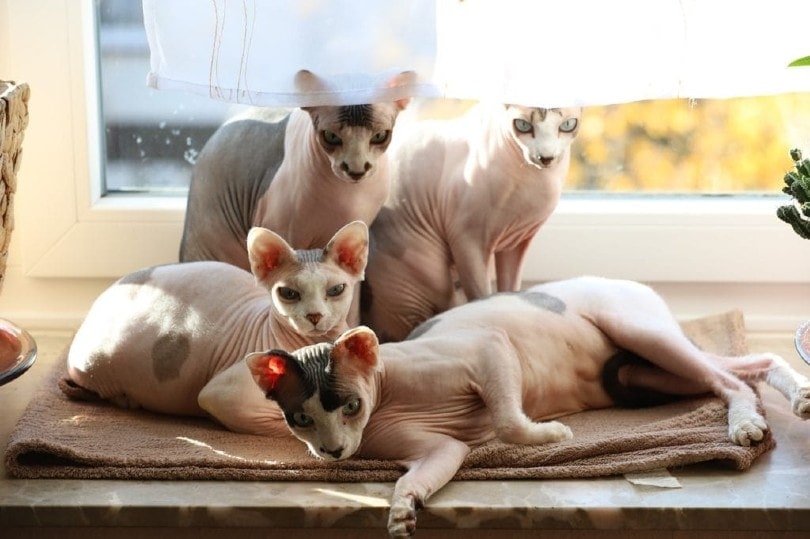
| Author: | Charles Baudelaire |
| Year: | 19th century |
“Cats” was written by the short-lived French poet Charles Baudelaire. A troubled but sensitive man, Baudelaire enjoyed the company of cats and was often ridiculed for giving more time to his cats than the people in his life.
They are alike, prim scholar and perfervid lover:
When comes the season of decay, they both decide
Upon sweet, husky cats to be the household pride;
Cats choose, like them, to sit, and like them, shudder.
Like partisans of carnal dalliance and science,
They search for silence and the shadowings of dread;
Hell well might harness them as horses for the dead,
If it could bend their native proudness in compliance.
In reverie they emulate the noble mood
Of giant sphinxes stretched in depths of solitude
Who seem to slumber in a never-ending dream;
Within their fertile loins a sparkling magic lies;
Finer than any sand are dusts of gold that gleam,
Vague starpoints, in the mystic iris of their eyes.
10. The Galloping Cat
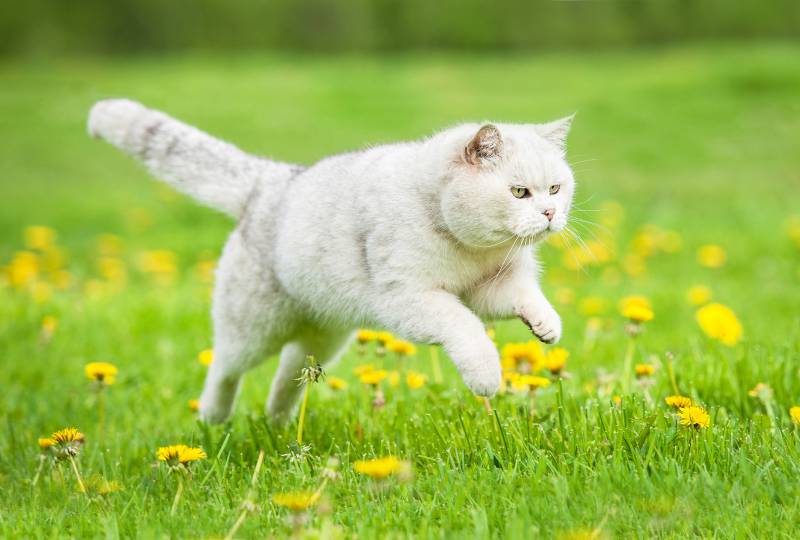
| Author: | Stevie Smith |
| Year: | 20th century |
“The Galloping Cat” is a Stevie Smith poem that blends energy, humor, quirkiness, and naivety in its simplicity. It perfectly summaries all the traits of a cat.
Oh I am a cat that likes to
Gallop about doing good
So One day when I was
Galloping about doing good, I saw
A Figure in the path; I said
Get off! (Because I am a cat that likes to
Gallop about doing good)
But he did not move, instead
He raised his hand as if to land me a cuff
So I made to dodge so as to
Prevent him bringing it orf,
Un-for-tune-ately I slid
On a banana skin
Some Ass had left instead
Of putting it in the bin. So
His hand caught me on the cheek
I tried to lay his arm open from wrist to elbow
With my sharp teeth
Because I am a cat that likes to gallop about doing good.
Would you believe it?
He wasn’t there
My teeth met nothing but air,
But a Voice said: Poor Cat
(Meaning me) and a soft stroke
Came on me head
Since when
I have been bald
I regard myself as
A martyr to doing good.
Also I heard a swoosh,
As of wings, and saw
A halo shining at the height of
Mrs Gubbins’s backyard fence,
So I thought: What’s the good
Of galloping about doing good
When angels stand in the path
And do not do as they should
Such as having an arm to be bitten off
All the same I intend to go on being
A cat that likes to
Gallop about doing good
So now with my bald head I go,
Chopping the untidy flowers down, to and fro,
An’ scooping up the grass to show
Underneath
The cinder path of wrath
Ha ha ha ha, ho,
Angels aren’t the only ones who do not know
What’s what and that
Galloping about doing good
Is a full-time job
That needs
An experienced eye of earthly
Sharpness, worth I dare say
(if you’ll forgive a personal note)
A good deal more
Than all that skyey stuff
Of angels that make so bold as
To pity a cat like me that
Gallops about doing good.
Conclusion
We hope you enjoyed these great poems about cats! These are just a few famous cat poems, but there are many feline classics to choose from.
Featured Image Credit: Pixel-Shot, Shutterstock


